Odyssey 4.155-305
I have translated νηπενθές ‘anti-depressant’, which is a depressing thing to do. The mere sound of some of Homer’s words conjures sensations and intimations that make semantic translation seem like butchery. But I have gone for a modern medicinal property, rather than to ‘cease upon the midnight with no pain.’
Helen and Menelaus have lived life on a grand scale. Now they have ‘come down to earth,’ a multivalent sort of movement in both the Iliad and the Odyssey. They have settled into retirement in the gated suburbs. The inevitable talk of the past leads to uncontrollable tears of regret and longing. Helen has an Aegyptian remedy, her little helper, to fortify the wine. Nepenthe is strong stuff: you’d sit there unmoved even if your mother or father dropped dead in front of you, if your brother or your own child were slaughtered before your eyes. It would seemingly get you through torture. At least, while the drug lasted. But despite the scale of the events this fatefully married couple have set into motion, they are surely not the only couple, or the only people, living into later years haunted by their memories, losses, and regrets. Drug use, even to literal oblivion, pervades modern societies and households. Our euphemism of the ‘happy hour’ bespeaks a general need to drown or distract from our predicament, at a certain time of day. Poor Peisistratus says he doesn’t like to get all sad around dinner time. Perhaps he speaks for himself. Tell him he buys the next round.
Homer describes Helen’s Aegyptian drugs as μητιόεντα, filled with mētis, ‘intelligence’, ‘kenning’, ‘cunning’, the quality for which Odysseus is famous. She chooses the perfect painkiller to heal her parlour evening. But the narrator also describes the Egyptian drugs (pharmaka) as being πολλὰ μὲν ἐσθλὰ μεμιγμένα πολλὰ δὲ λυγρά, ‘many of quality when mixed, but many mischievous.’ The perfect balance of the Greek phrasing, however, with ‘mixed’ in the middle, perhaps suggests that these drugs are both at once, like a number of double-sided objects in the Odyssey. We could certainly testify ourselves that painkillers are a mixed bag.
‘She turned her thought to other things, Helen, Zeus’s begotten …’ It was Athena who had earlier ‘thought of other things,’ directing from behind the scenes the preparations for Telemachus’ trip. Here it is Helen who earns the line of the divine directrix. In the nepenthe passage she is twice addressed as Zeus’s daughter, like Athena. But the divine power she exerts over the scene comes from an Egyptian drug, a gift from an Egyptian wife. This is curious.
What is Homer’s (the narrator’s) purpose in his allusions to Aegypt? Talking of coming down to earth, the Achaean world seems well impressed with Menelaus’ wealth, but the narrator tells us the very richest houses are actually in Aegypt. That is where Menelaus spent his time acquiring all his stuff somehow, while his brother back home was assassinated. Telemachus gapes in awe at Menelaus’ palace, but the narrator makes it clear that he himself knows better. Sparta ain’t all that. It’s no Aegypt.
Helen of course is virtually a goddess among Greek speakers. But here we find her well domesticated. All the best drugs, for good or ill, are to be found over in Aegypt, not here; everyone there is a healer, who understands more than all other men. Helen’s technology, intimating her divine superpower, is borrowed from superiors overseas. Her finest implements, her golden distaff and wheeled silver basket, all hail as gifts from a non-epic, but fabulous, household in the Aegyptian Thebes. Later, at the end of the visit, Telemachus refuses Menelaus’ parting gift of horses, because, he says, they’re no use in Ithaca. The epic, chivalric, noble animal has no place there; she’s a rocky country best fit for goats.
There is something funny and affecting about this narrator’s perspective on things, amidst the shifting perspectives of his characters, which he delimits and diminishes with his Aegyptian asides. The comedy of the Odyssey often seems to thrive on (gently) cutting the pretensions of Greek-speaking epic, and its protagonists, down to size.
In Greek:


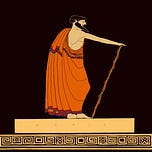

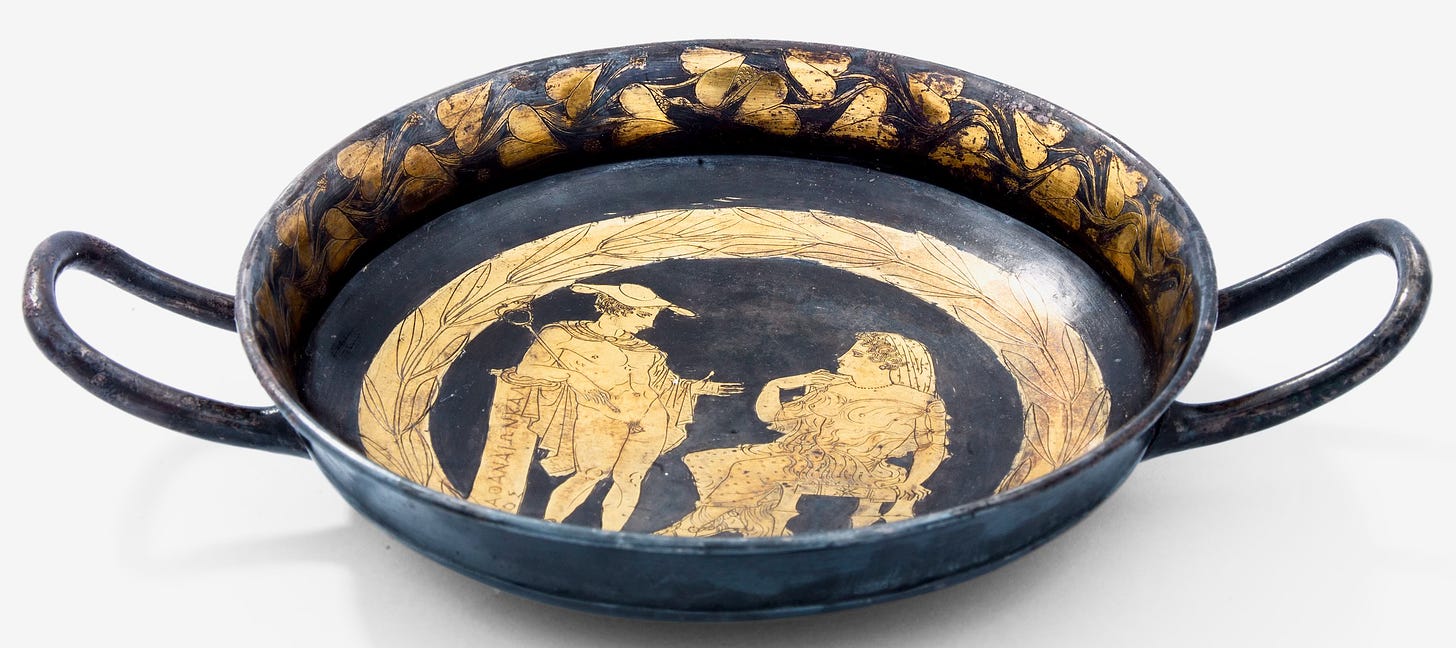

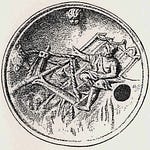

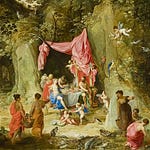
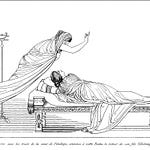
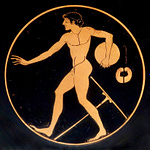


Nepenthe: Homer in English